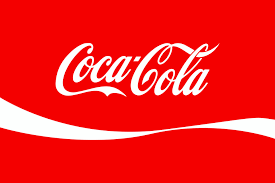Coca-Cola Nigeria Ltd. has restated its commitment to sustainability priorities to galvanise the food and beverage industry and tackle package waste challenges.
Its Director, Public Affairs, Communication and Sustainability, Amaka Onyemelukwe, said this during the Nigeria-South Africa Chamber of Commerce (NSACC) April Breakfast Meeting on Thursday in Lagos.
The reports that the event had as its theme: “Leadership for Sustainability: Lessons from the Coca-Cola Way.”
Onyemelukwe said the company had removed over 900,000 tonnes of added sugar from its global portfolio from 2017-2021 through efforts to reformulate more than 1,000 beverages.
She added that Coca-Cola ensured that 167 per cent of water used in its finished beverages returned to nature and communities in 2021.
Onyemelukwe stated that to drive the company’s World Without Waste initiative, it ensured that 61 per cent of the equivalent bottles and cans introduced into the market in 2021 were collected and refilled or collected for recycling.
She added that its 2030 water security strategy was committed to increasing water security through a context-based approach to water replenishment and using the company’s size to improve water security.
Onyemelukwe said the company would continue to advocate for smart water policies and responsible water usage across its operations and supply chain.
She added that the company would maintain at least 100 per cent global replenishment of the water used in its finished beverages.
“Our World Without Waste initiative is anchored by three fundamental goals of design, collect and partner to make 100 per cent of our packaging recyclable globally by 2025- and use at least 50 per cent recycled material in our packaging by 2030.
“The initiative is to also reduce our use of virgin plastic derived from non-renewable sources by a cumulative three million metric tonnes by 2025.
“By 2030, we aim to have at least 25 per cent of our beverages worldwide by volume sold in refillable/returnable glass or plastic bottles or in fountain dispensers with reusable packaging,” she said.
Onyemelukwe reaffirmed the company’s plans to expand to total beverage company by establishing a portfolio of drinks that are best positioned to grow into a fast-changing marketplace.
“As part of our networked, global organisation, we are continuing to curate and innovate a tailored collection of global, regional and local brands that are organised within five categories,” she said.
She said Coca-Cola would continue to partner with industry players to set-up a coalition to tackle the packaging waste problem, work with government to create policies and recycling standards for a more sustainable environment.
The 137 years old Coca-Cola brand which has been operational for almost 72 years in Nigeria has footprints in about 200 territories globally.
It also has about 30 million retail outlets.













